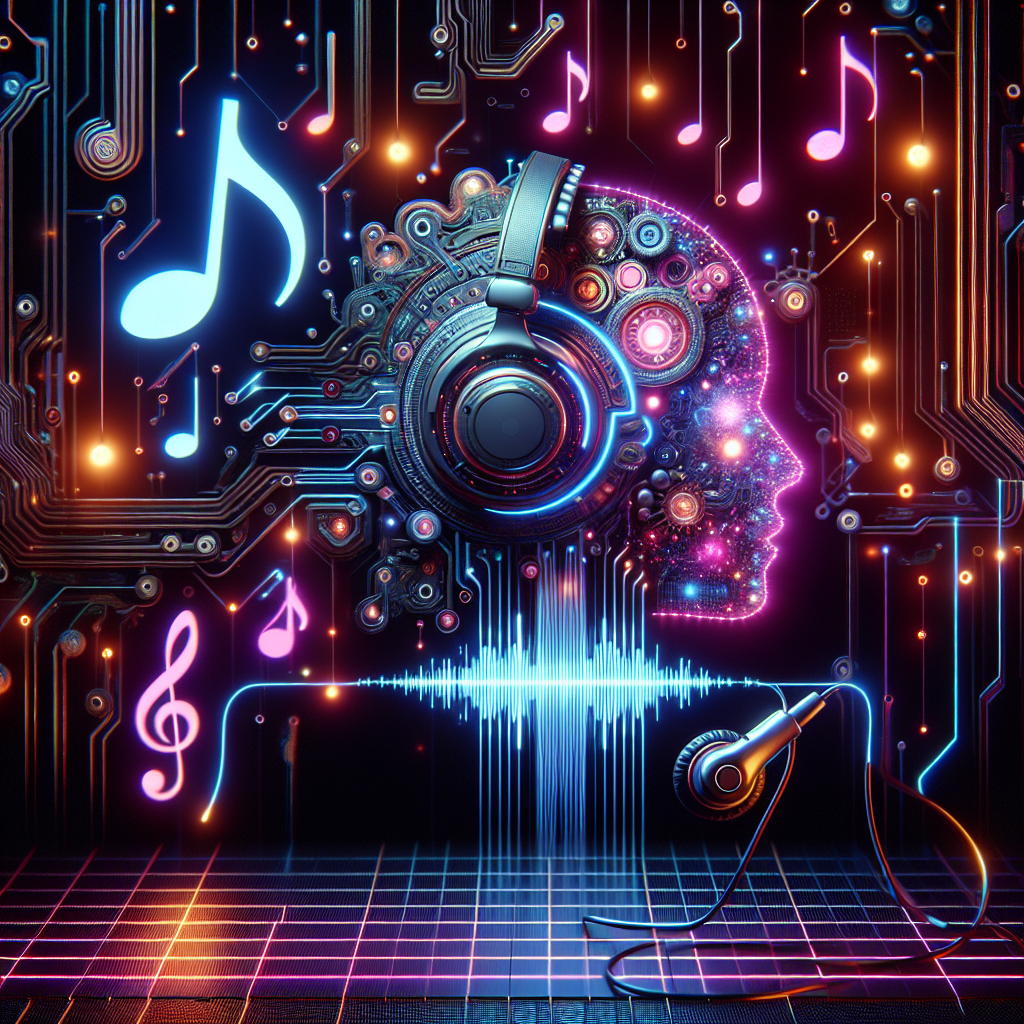Artificial intelligence has made significant advancements in recent years, particularly in the realm of music composition. AI-generated music is becoming increasingly popular, with algorithms being used to create original compositions that rival those of human composers. But what exactly is AI-generated music, and how does it compare to music created by human artists?
Exploring the Aesthetics of AI-Generated Music
AI-generated music is created using algorithms and machine learning techniques that analyze existing musical compositions to generate new, original pieces. These algorithms can be programmed to mimic the style of a particular composer or genre, or they can create entirely new styles of music that have never been heard before.
One of the key advantages of AI-generated music is its ability to produce large volumes of music quickly and efficiently. This can be particularly useful for composers who are looking to generate ideas or experiment with different styles and genres. AI-generated music can also be used in commercial applications, such as in soundtracks for movies, video games, or advertisements.
However, there are also limitations to AI-generated music. While algorithms can analyze and mimic existing musical styles, they lack the emotional depth and creativity that human composers bring to their work. AI-generated music may lack the nuanced expression and personal touch that human composers are able to imbue in their compositions.
Despite these limitations, AI-generated music has the potential to push the boundaries of musical creativity and innovation. By combining the analytical capabilities of algorithms with the emotional depth of human composers, AI-generated music has the potential to create new and exciting musical experiences for listeners.
FAQs about AI-Generated Music
Q: How does AI-generated music work?
A: AI-generated music works by using algorithms and machine learning techniques to analyze existing musical compositions and generate new, original pieces. These algorithms can be programmed to mimic the style of a particular composer or genre, or they can create entirely new styles of music.
Q: Can AI-generated music rival human compositions?
A: While AI-generated music can produce high-quality compositions, it often lacks the emotional depth and creativity that human composers bring to their work. AI-generated music may lack the nuanced expression and personal touch that human composers are able to imbue in their compositions.
Q: What are the advantages of AI-generated music?
A: One of the key advantages of AI-generated music is its ability to produce large volumes of music quickly and efficiently. This can be particularly useful for composers who are looking to generate ideas or experiment with different styles and genres. AI-generated music can also be used in commercial applications, such as in soundtracks for movies, video games, or advertisements.
Q: Are there any limitations to AI-generated music?
A: While AI-generated music has many advantages, it also has limitations. Algorithms can analyze and mimic existing musical styles, but they lack the emotional depth and creativity that human composers bring to their work. AI-generated music may lack the nuanced expression and personal touch that human composers are able to imbue in their compositions.
In conclusion, AI-generated music is a fascinating and innovative field that has the potential to revolutionize the way we create and experience music. While there are limitations to AI-generated music, such as the lack of emotional depth and creativity compared to human compositions, the technology has the potential to push the boundaries of musical creativity and innovation. As AI continues to evolve, we can expect to see even more exciting developments in the field of AI-generated music in the years to come.

